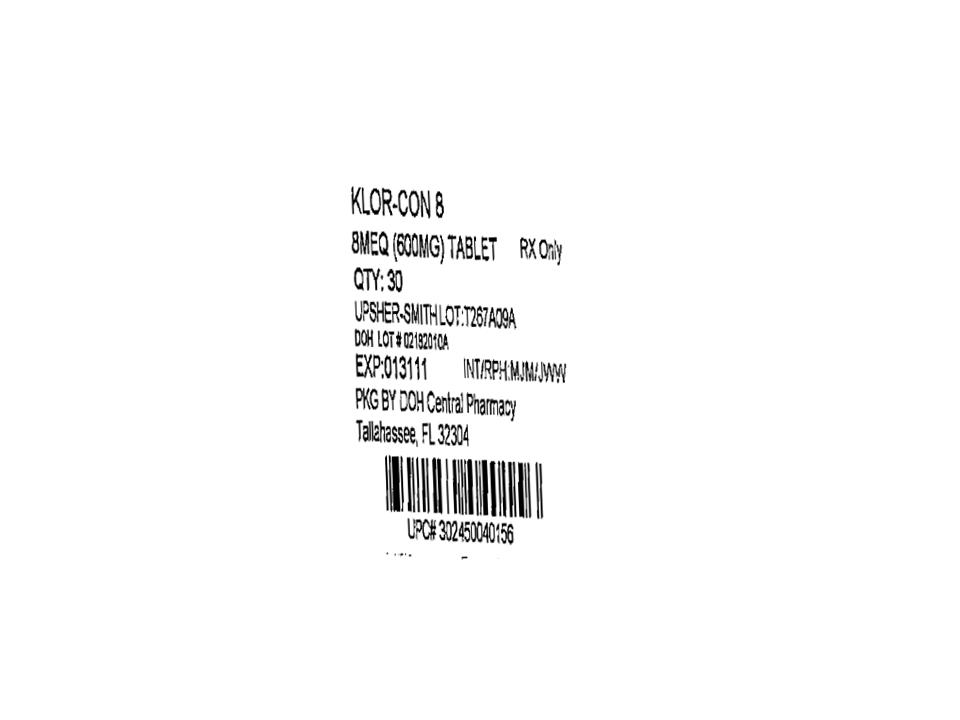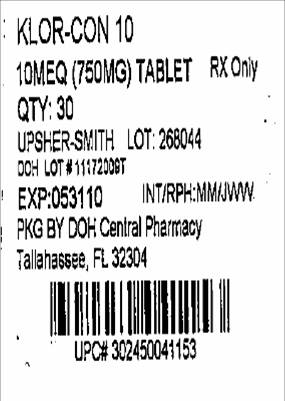Klor-con Extended-release | Potassium Chloride Tablet, Extended Release while Breastfeeding

What is Klor-con Extended-release | Potassium Chloride Tablet, Extended Release ?
Is using Klor-con Extended-release | Potassium Chloride Tablet, Extended Release safe or dangerous while breastfeeding?

Nursing Mothers: The normal potassium ion content of human milk is about 13 mEq per liter. It is not known if Klor-Con® Extended-release Tablets have an effect on this content. Since oral potassium becomes part of the body potassium pool, so long as body potassium is not excessive, the contribution of potassium chloride supplementation should have little or no effect on the level in human milk.
Klor-con Extended-release | Potassium Chloride Tablet, Extended Release Breastfeeding Analsys
Potassium chloride while Breastfeeding
SafeCAS Number: 7447-40-7
Human milk has a potassium concentration of 13 meq/L, almost a half of rehydration solution content and a quarter of maximal IV recommended dose. Potassium supplementation does not alter milk concentration without increasing mother’s serum concentration, which is strictly limited from 3,5 to 5,5 meq/L.

I already used Klor-con Extended-release | Potassium Chloride Tablet, Extended Release and meanwhile I breastfed my baby should I be concerned?
Klor-con Extended-release | Potassium Chloride Tablet, Extended Release is safe in breastfeeding and should not create any health problem for your baby but in case you feel any health issue associated with Klor-con Extended-release | Potassium Chloride Tablet, Extended Release you should contact your doctor or health care provider. Be it pregnancy or lactation you shall keep your doctor informed.
My doctor has prescribed me Klor-con Extended-release | Potassium Chloride Tablet, Extended Release, what should I do?
Usage of Klor-con Extended-release | Potassium Chloride Tablet, Extended Release is safe for nursing mothers and baby, No worries.
If I am using Klor-con Extended-release | Potassium Chloride Tablet, Extended Release, will my baby need extra monitoring?
No
Who can I talk to if I have questions about usage of Klor-con Extended-release | Potassium Chloride Tablet, Extended Release in breastfeeding?
US
National Womens Health and Breastfeeding Helpline: 800-994-9662 (TDD 888-220-5446) 9 a.m. and 6 p.m. ET, Monday through Friday
UK
National Breastfeeding Helpline: 0300-100-0212 9.30am to 9.30pm, daily
Association of Breastfeeding Mothers: 0300-330-5453
La Leche League: 0345-120-2918
The Breastfeeding Network supporter line in Bengali and Sylheti: 0300-456-2421
National Childbirth Trust (NCT): 0300-330-0700
Australia
National Breastfeeding Helpline: 1800-686-268 24 hours a day, 7 days a week
Canada
Telehealth Ontario for breastfeeding: 1-866-797-0000 24 hours a day, 7 days a week
